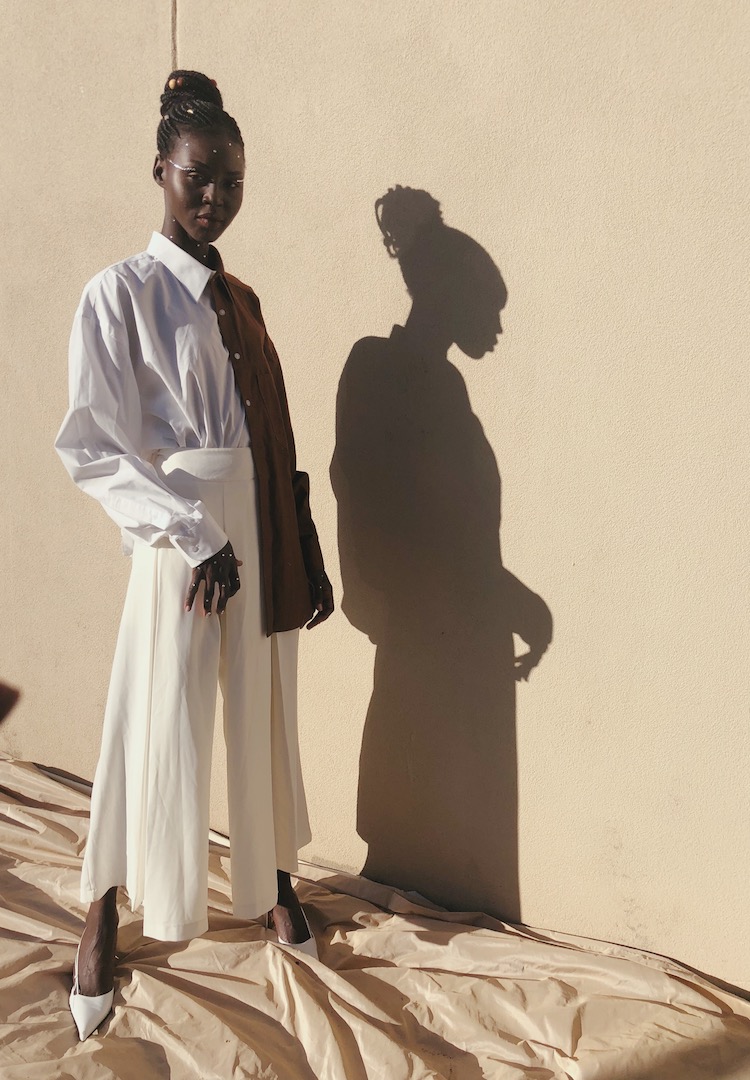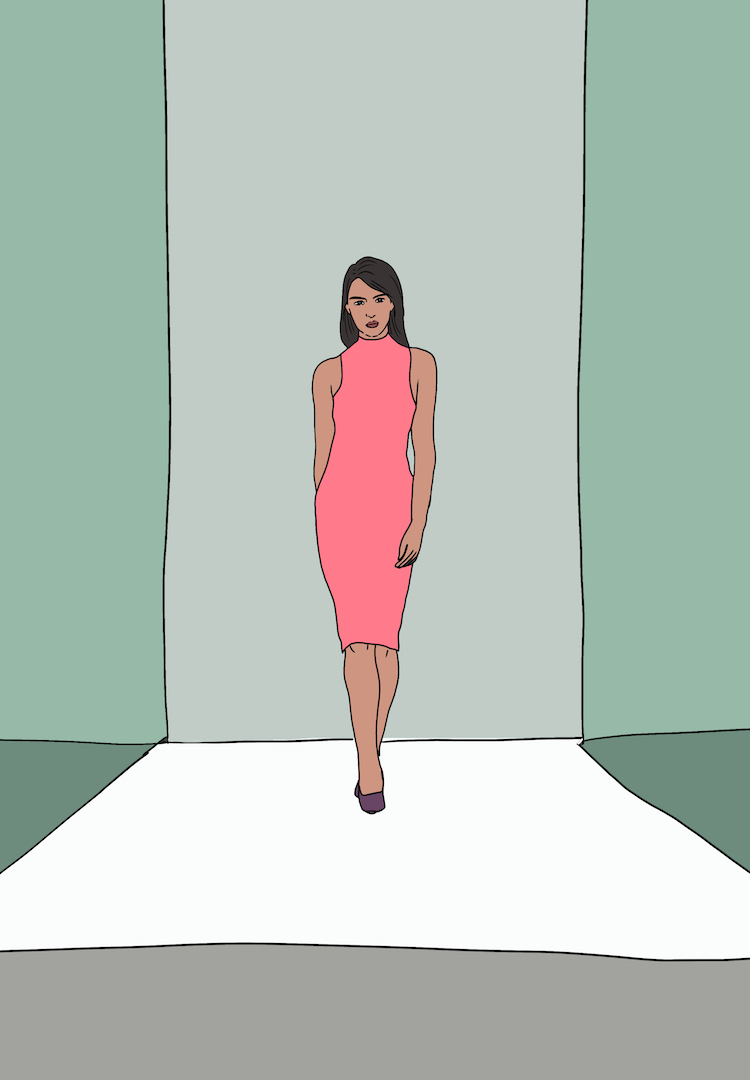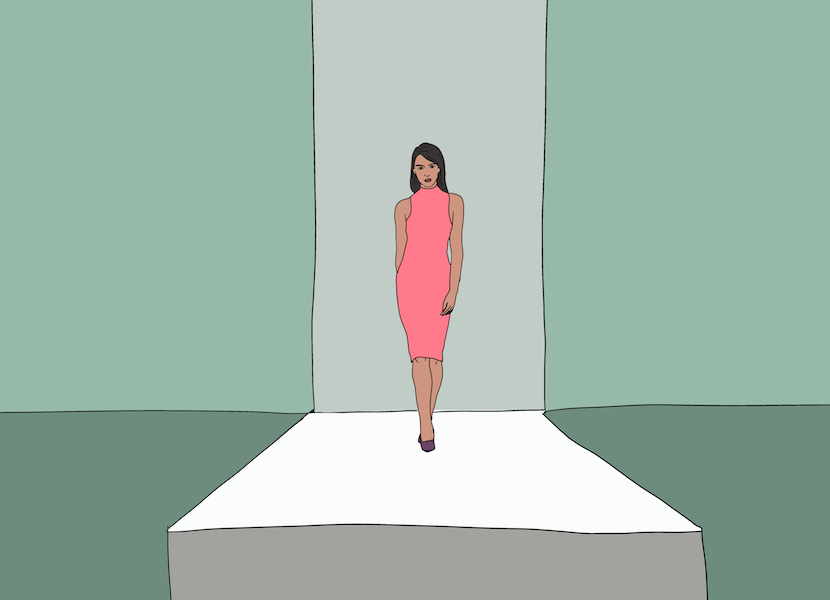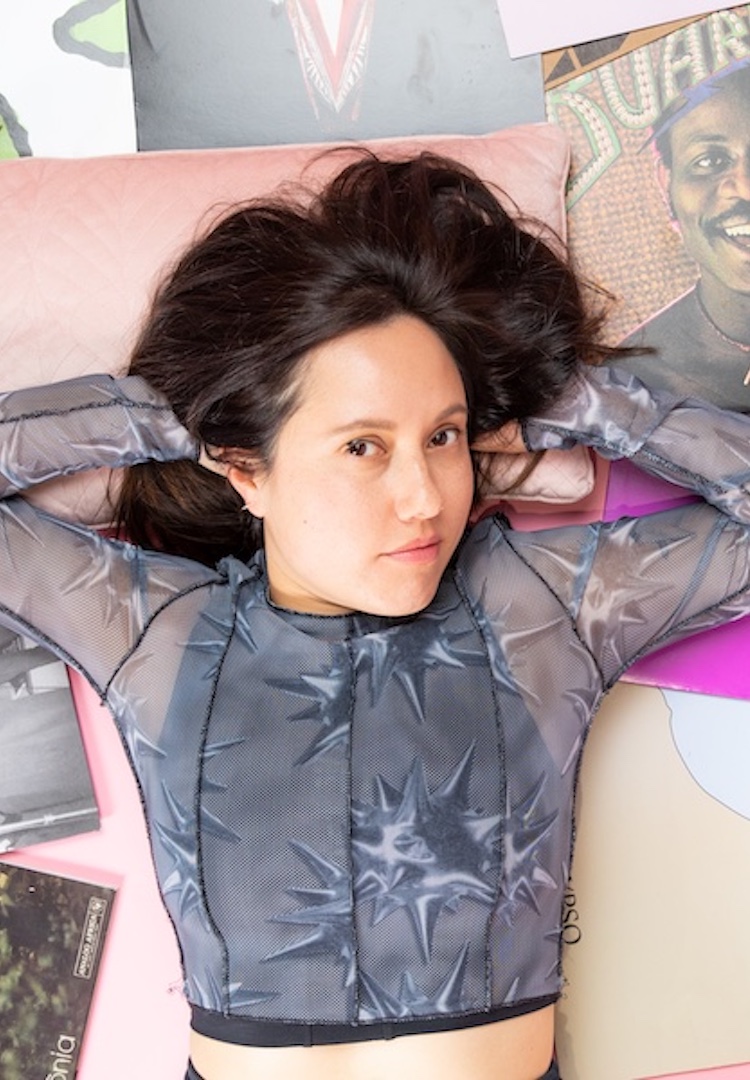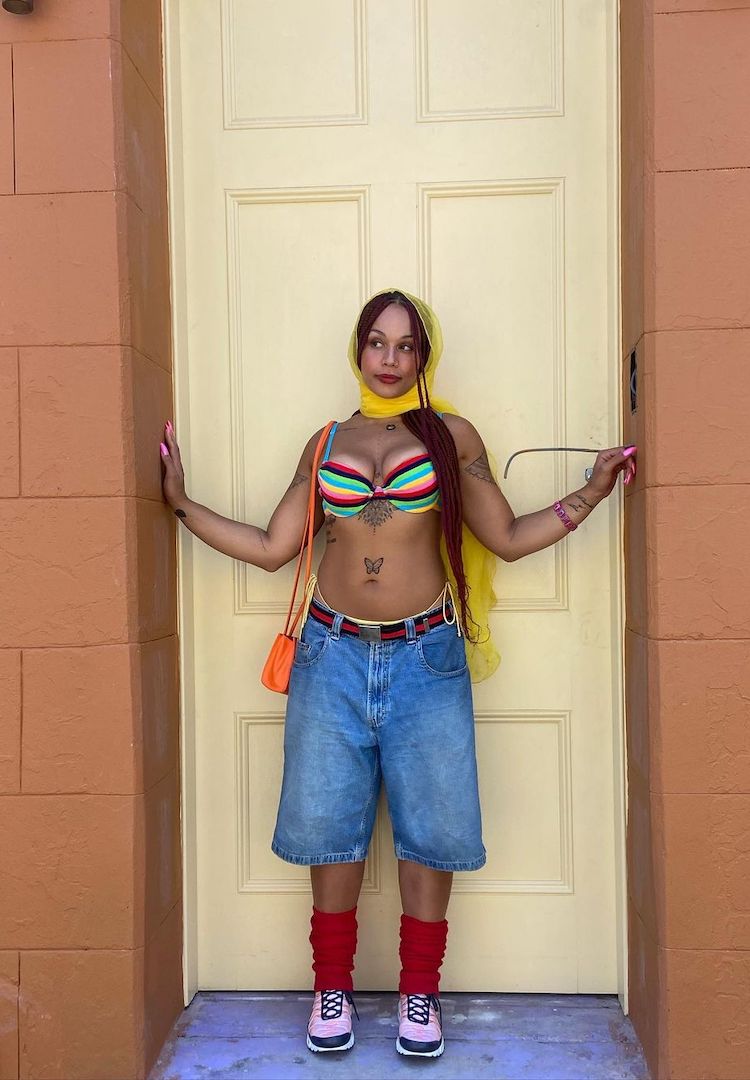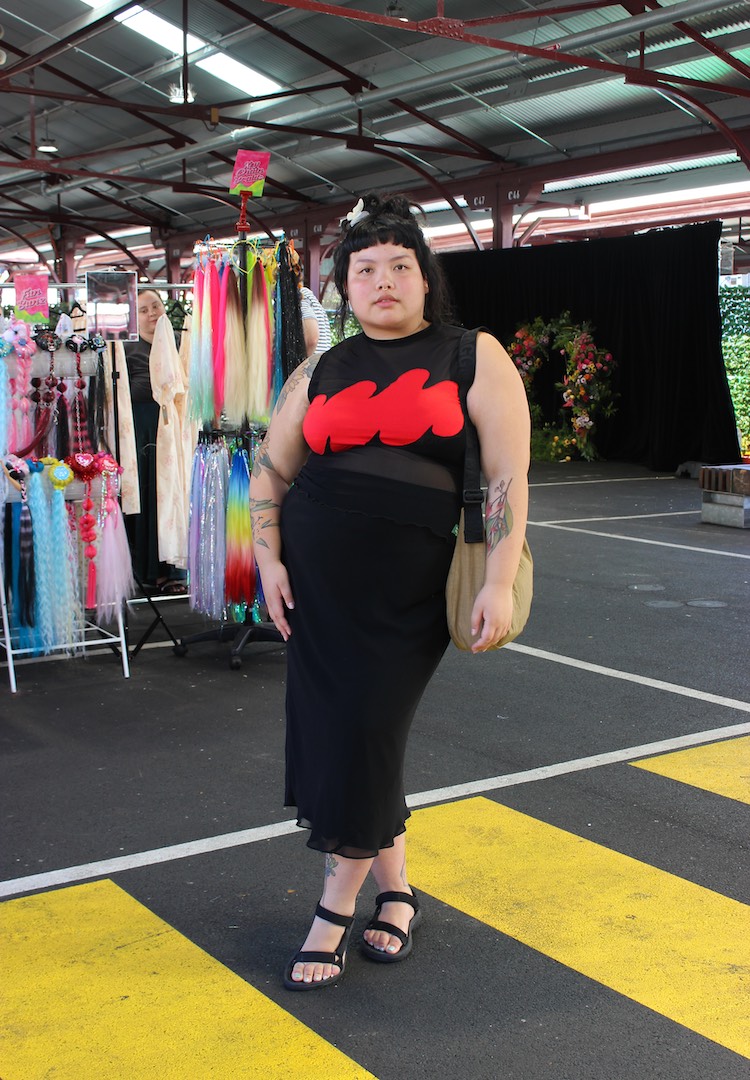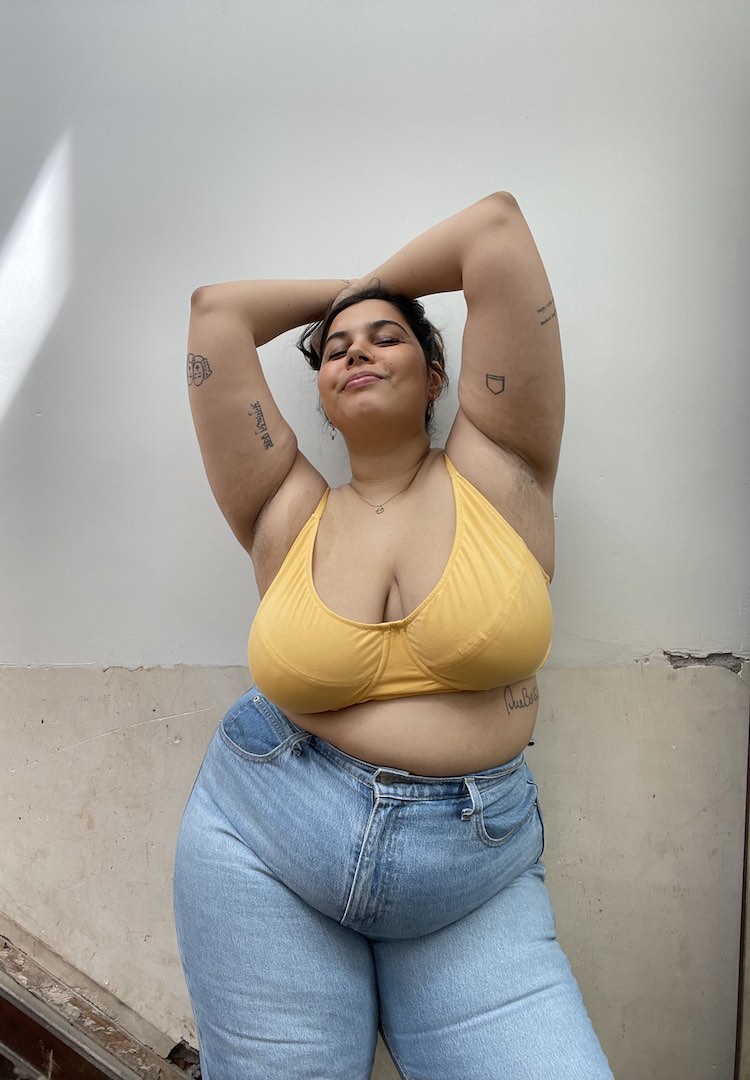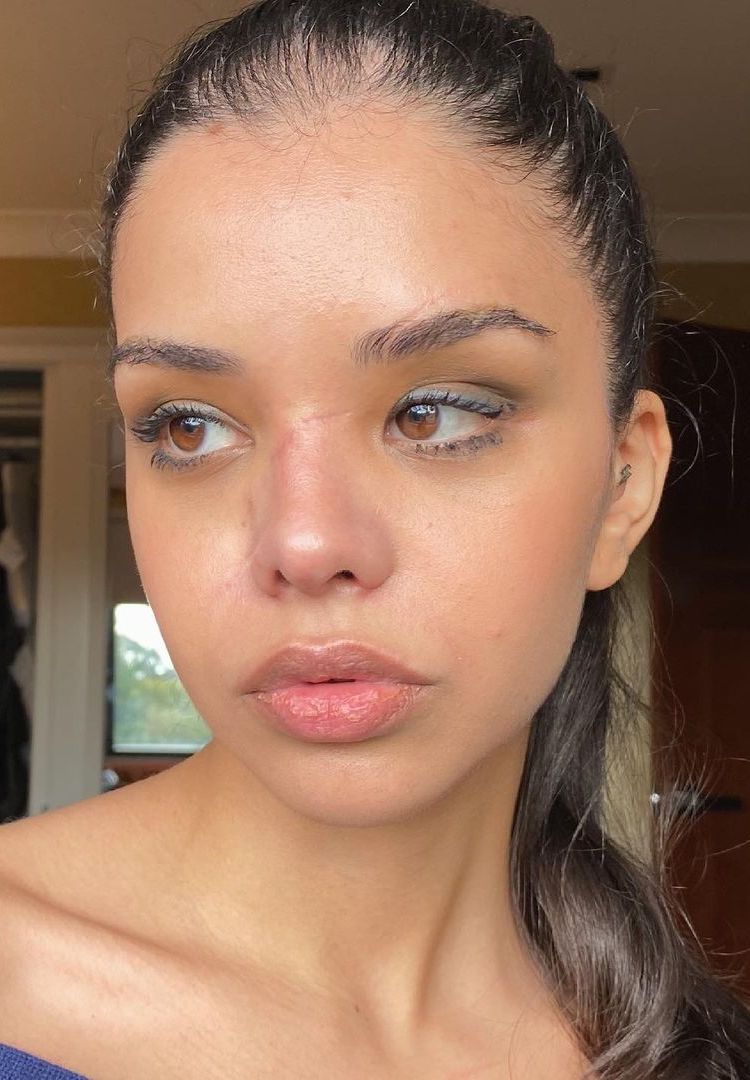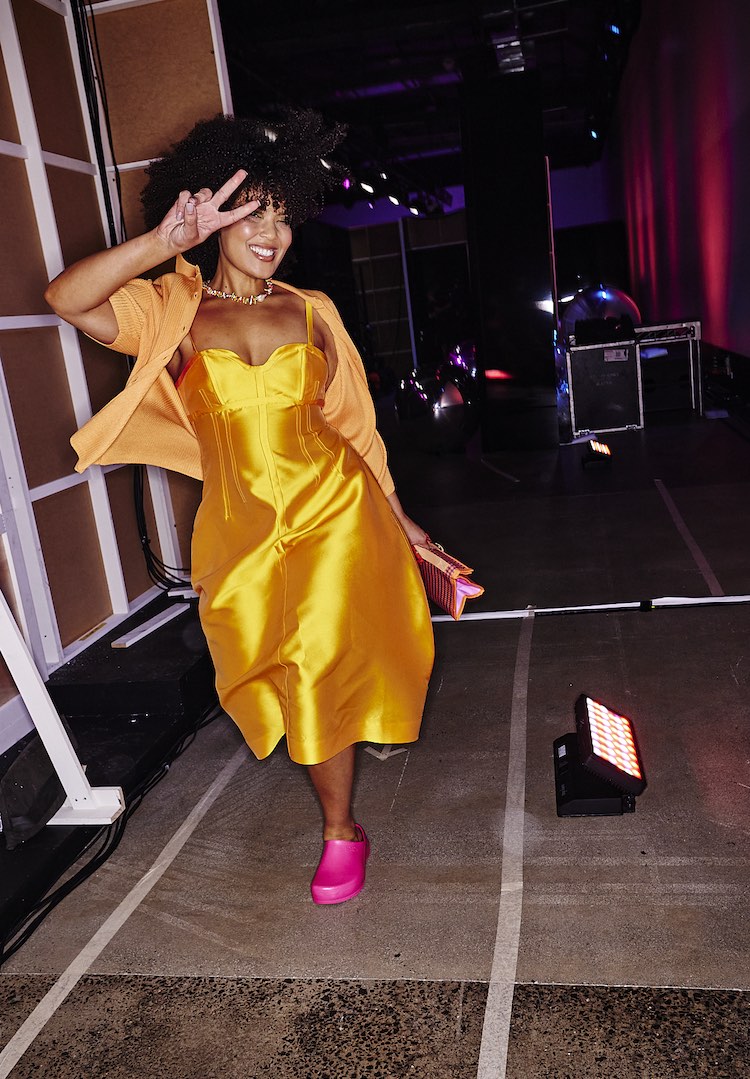I’ve been modelling for years, how long until I feel like one?
Illustration by Twylamae
Words by Jonti Ridley
Model citizen.
I recently got dropped from my modelling agency. There’s no shade, and this isn’t a big reveal or cancel. It just happened.
Two years ago, if you told me my agency and I were going to part ways, I would’ve cried right then and there. But when I received the notice, I surprised myself. No tears, no tantrum, no real extravaganza of anything. After four years of professional modelling (two of which were with an agency), I can take it as a sign and slowly take my bow. More than anything, with a few years’ experience under my belt, there’s a lot I wish I had braced myself for.
Modelling was never a long-term career goal for me, and I think this is what kept me grounded during the years I did it. I was fortunate to have other career aspirations and jobs, so getting cast wasn’t a life or death (or paying rent) situation. I’m of the generation that grew up on the cusp of ’90s supermodels, my budding adolescence met with Next Top Model. This meant I knew models were the beauty elite, but in the world of reality TV, it was attainable to us. I had spent so much time (even before I started out) putting the title of ‘model’ on a pedestal, and even though I worked in the field, I never felt I belonged up there with it.
My dad tells me I was really plain-looking when I was younger. Mum denies this, but I’ve seen the photos and he definitely has a point. In fact, when I told most people I modelled, it was met with a look of confusion and an ‘up and down’ glance that only told me they didn’t believe me. Honestly, sometimes I didn’t believe myself. The word ‘model’ felt uncomfortable in my mouth. I spent a lot of my life feeling like an ‘other’ and even longer as an ‘ugly duckling’. This newfound accolade for my face and body made me paranoid it was all just a joke. I understand where they’re coming from, I have multiple face piercings, legs full of tattoos and am currently repping a mullet, so it’s a little confusing through the eyes of traditional beauty.
If I were to place my good and bad experiences on either side of a scale, I honestly think the bad ones would weigh more. I can say that, and I know it’s the truth, so why am I applying to new agencies and actively seeking out jobs?
There are plenty of more educated sources that discuss the complexity of the modelling industry and its often-insidious undertones (SBS Viceland Breaking the Model is particularly good), and I can, of course, only speak from personal experience. The Instagram account Shit Model MGMT tried to call out repeat offenders through its IG stories, only to be threatened with lawsuits and temporary account closure. It also tried to create a private blacklist for models to use for their own safety (@shitmodelmgmtlist), which was quickly shut down by the social media platform. This happened over a year ago now, but speaks volumes on how quickly any ‘tell-alls’ are swiftly muzzled. Bluntly put, no matter how much success we have in creating more representation within the industry, the underbelly will always exist. An industry that profits from the sexualisation of both men and women, while actively shaming consumers into unattainable beauty standards, will always be a breeding ground for people with less than honourable intentions.
Like a lot of young models, I’ve been put in situations in which I was visibly uncomfortable but forced to work in out of fear I would be sent home early and unpaid. I’ve had photographers feel entitled to touch me or make inappropriate comments about how I looked. I’ve had stylists tell me straight to my face that I was too fat for the clothes, and that I would ruin the shoot. The days were long, sometimes the breaks nonexistent, and it was defeating knowing that I was going to go to a job casting and be told there was something wrong with me. Like any creative industry, models are often lowballed on pay rates and manipulated into working for free for exposure. But modelling is the one industry that seems unavailable to critics, dismissed with an air of ‘“Oh yes, we all know that”.
There’s a curious culture of simultaneous ridicule and possession around models. You’re designed to be a blank, inanimate canvas for the dream of a consumer, corporation or creative director to be projected upon, and this curated aloofness makes you unappealing to everyone to which you’re meant to embody aspiration. You’re too thin, too angular, too unattainable, too pouty, and everyone has ownership over the criticisms they can make. You’re a public figure! And no one can feel sorry for someone who looks like that. How can you have problems?
So the silent suffering endures.
Thankfully, there are people working from inside the industry to change that perception. Chelsea Bonner started Bella Model Management out of frustration at not seeing people like her on magazine covers or on the runway, and now represents models of size, age, ability, ethnicity, class and gender diversity. Jess Quinn is an amputee sports model from New Zealand, who has used her public platform to be vocal about the underrepresentation of disability in the fashion industry, and Australian Robyn Lawley has long been an advocate for size diversity after she became the first curve model to appear on the cover of Vogue Australia in 2013. No doubt the industry has made great strides in the last few years, but there’s a lot more work to be done. It’s important that not only onlookers critique the workings of the modelling industry and media as a whole, but those who work within.
I have been incredibly fortunate to meet a number of friends through jobs, and have had experiences I never thought I could. My face was on a bus, which is a personal career highlight. It was also a fantastic way to give myself more financial freedom while I studied. I also spent so much time modelling, unhappy. I have found myself given an out, and who knows, maybe I’ll take it. But within the hour of separating from my first agency, I was contacting others and setting myself up to freelance again.
I recognise my feelings about, and experiences in, the industry contradict one another. Did it make my insecurities worse? Sometimes, but it also allowed me to see myself as my own brand of beauty. Was my naivety and youth often used against me? Sure was, but it was a quick way to practice becoming more assertive. Did casting give me anxiety? Absolutely, but my public persona quickly developed and now I can easily snap into character in a range of situations I typically wouldn’t be able to handle. In an ideal world, the good would exist without the bad, but it would disingenuous to pretend I only faced one and not the other.
If by chance, you’re reading this and questioning whether this is an industry for you, my greatest advice is to make sure you’re ready. Mentally, physically and emotionally, it’s a landscape that can be incredibly difficult to navigate. See a mental health care professional, make sure you’re not sacrificing your health and keep your friends close.
Being pretty is fun, but it can turn ugly in a snap if you’re not careful.

